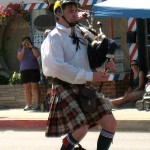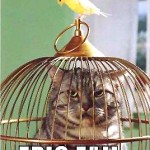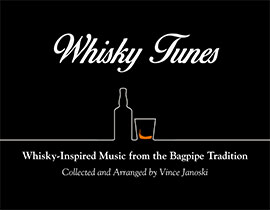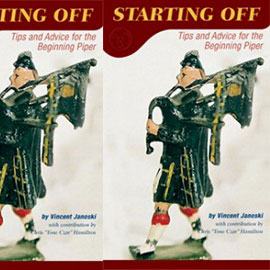Transcript of Donald Lindsay’s Thoughts on the Status of the EUSPBA Judges Panel

Last week on Bagpipe Nation, we had a great conversation with special guest Donald Lindsay on canntaireachd and its connection to piobaireachd. We had a brief discussion near the end of the webcast on EUSPBA judging and Donald weighed in with some poignant commentary. Here is a transcript of that discussion from January 27, 2011 at about the 55 minute mark.
ANDREW: We’ve been talking a lot on PipeHacker.com and last week’s webinar about the judging system in the EUSPBA and one of the things that occurred to me is that you were involved from the very beginning in the EUSPBA, and it would be great to hear how things all began, and where you think we are today.
DONALD: I’m glad you asked that question. The point I would like to emphasize is, things have changed a great deal since the early days of the EUSPBA. They’ve changed largely because the interest in piping is widening. I dare say, there are more people involved in piping by far, by far, compared to the early days. So, here’s the rub: In the early days, the mission that was put before us was to try to equip people to sit down at that bench and offer a constructive criticism for those who came to play. And, I won’t go into depth as to how primitive things were before that took place, but I’ll say briefly, the modern competitor would probably not be satisfied with how things were before that took place. We literally had score cards – we didn’t have criticism sheets – and they were just like a little post card, and you would just write a couple of remarks, and if you got that, you felt lucky that you got that. And, at the time, people were sort of OK with that. But as more and more people started to play the pipes the expectation got bigger and bigger about “Oh, I really want something bigger to take home.” So, that’s how we started the judges training program. And the basic idea was that there would be seminars to broaden people’s knowledge and understanding, and that there would be apprentice training so inexperienced people could sit with experienced people and try to learn from them. And then, there would be testing to see how they were doing.
I’m afraid, in my humble opininon, that we’ve moved past that now, and some of those aspects don’t work anymore, and some of them are not going to work for the future. Here’s the underlying problem; and I’ll speak of it first with Piobiareachd; The notion is now being presented to people who want to become Piobaireachd judges that if they attend some seminars, that if they pass a written test, and, if they sit with an experienced judge, then they can become Piobaireachd judges. The unfortunate thing about that is, that’s not good enough. The problem is, and some people may not like to heae this, but the problem is that if someone really wants to be a Piobaireachd judge nowadays, they have to become fond of learning. And, if there’s any interaction with the EUSPBA, it should be to inspire them to begin a life of learning. That’s the only way we can grow as judges to meet the future demands.
What’s been brought to the table that’s new is an explosion of knowledge. And just reading a few tunes in a few books, reading a couple of Piobaireachds, and being taught a few ground rules on how to evaluate a performance simply won’t do in the future – because here’s the reality: As things move forward, versions of tunes are going to get presented to judges that they never knew existed. Now, for all the talk of “when is this stuff going to move forward,” the gate which will remain closed or be opened will be who sits at the bench. If those judges cannot take in new information and give it some sort of worth-while musical assessment, then the progress of piping will stop right there at the judges table.
So, trying to put this into a few words: It’s a new ball game and we can’t keep using the old methods. They were good for a while, to get a few people on the panel, however, it won’t promise a bright happy future for the development of piping and Piobaireachd playing. It’s going to require people like the late George M. Bell, the late Pipe Major Donald MacLeod, the late Robert Brown, and Robert Nicol, and the late Pipe Major John Wilson from Toronto – who were constantly learning. They never stopped until the last breath they took; they never stopped learning.
So, this misconception that you can get a certificate handed to you, and you know all there is to know is no longer valid. That’s a big problem, and I think future will lie in inspiring people to be life-long learners, not in giving them a certificate.
___
Donald Lindsay is the founder and director of the Invermark College of Piping, and is also involved with the Piper’s DoJo in Albany, NY
 Pipehacker
Pipehacker








